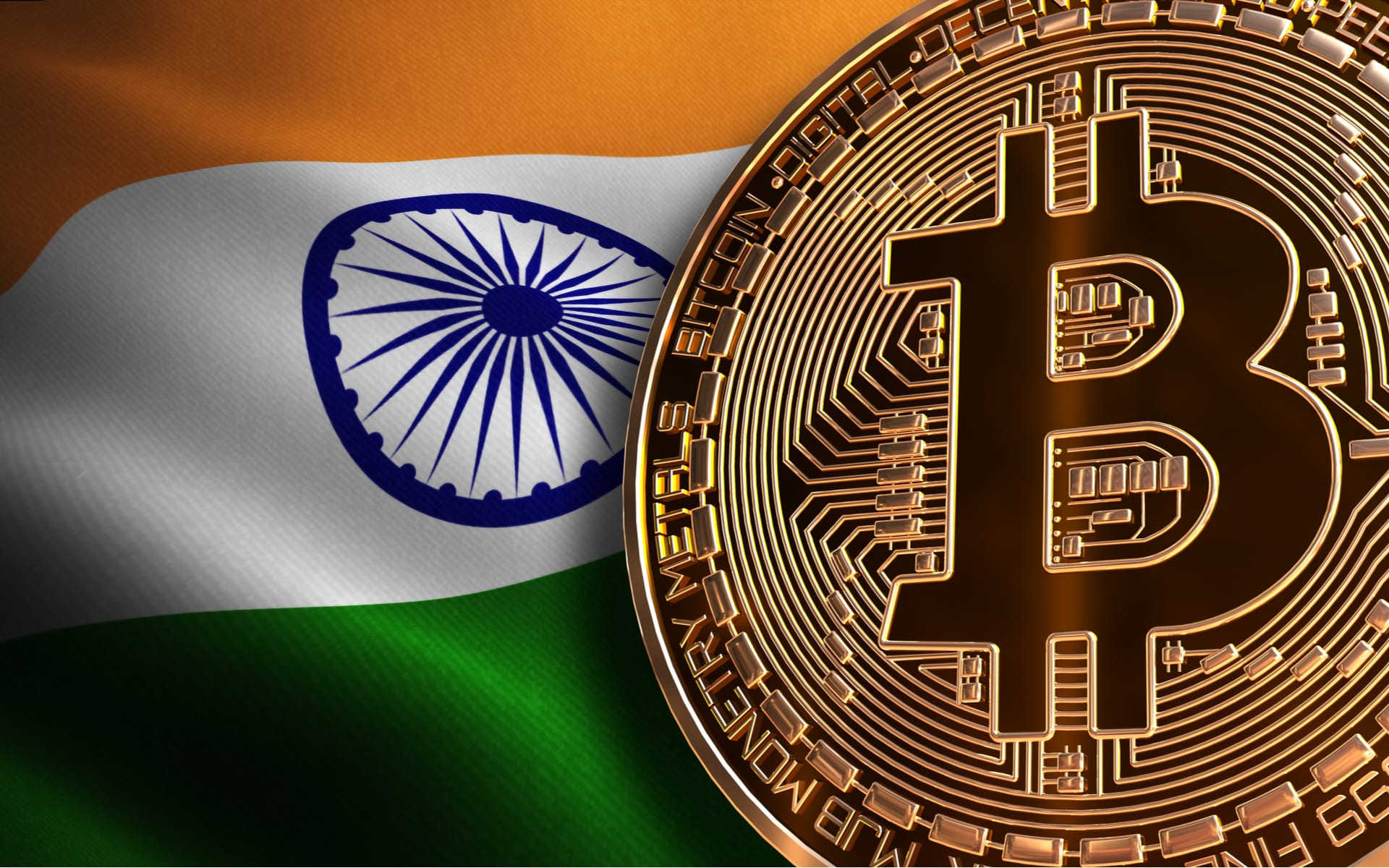In accordance with the RBI Remittance Survey 2021, a sizeable section of India’s expatriate population in the United Arab Emirates (UAE) is responsible for around 18% of the enormous amount of US$110 billion that is sent back to India from other countries across the world.
Beyond the world of remittances, the financial linkages between the two countries have now expanded into the realm of Web3, which is a developing form of the internet that is founded on blockchain technology.
Growth in Trade at All Levels Between India and UAE
Last year, the trade between India and the UAE witnessed a remarkable increase, reaching a staggering US$85 billion. Moreover, both nations are currently investigating the possibility of establishing compatibility between their respective central bank digital currency (CBDC) initiatives.
In Dubai, the UAE’s most populous city, an impressive number of Indian companies, exceeding 90,000, have registered with the Dubai Chambers. Additionally, the city’s largest tech event, GITEX, witnessed a remarkable increase in the participation of Indian startups, with over 300 present, a significant threefold growth compared to the previous year.
In 2023, India emerged as the leader in the Chainalysis Global Crypto Adoption Index, solidifying its position as the second-largest crypto market worldwide in terms of raw transaction volume. However, the declining local industry, caused by the government’s stringent tax regulations, is motivating local participants to explore the flourishing crypto ecosystem in Dubai.
Dubai and Singapore Are the Best for WEB3-Related Businesses
Many Web3 entrepreneurs choose Dubai or Singapore as their hubs due to the clear and specific regulations and strong community backing they offer. When establishing a business, investors feel more at ease when choosing a jurisdiction that avoids any surprises. Sumit Gupta, the chief executive of Indian crypto exchange CoinDCX, expressed concern about the emerging trend he has observed and emphasized the need for it to be reversed.
We have witnessed a significant decrease of over 90% in volumes. Wow, what a substantial and drastic drop. According to Gupta, India remains at the forefront of grassroots crypto adoption. However, a significant portion of this activity is taking place through alternative channels due to the burdensome tax rates.
Last year, Finance Minister Nirmala Sitharaman unveiled a new tax policy for profits generated from cryptocurrency trading. The policy includes a 30% tax rate, along with any applicable surcharges and a 4% cess.
The Introduction of the Tax Has Hit Indian Crypto Traders Hard
Indian crypto traders faced another setback this year as a 1% tax deducted at source (TDS) was introduced on crypto transactions exceeding Rs 10,000. As per a revision to the Income Tax Act, neglecting to make TDS payments could lead to consequences such as a penalty equivalent to the outstanding amount, a 15% interest on delayed payments, and, in certain situations, even imprisonment.
Gupta suggests that the practice of “regulatory arbitrage” may soon come to an end. A regulatory loophole exists that is unlikely to persist for an extended period and must be eliminated. The government is well-informed about that.
It’s just a question of when they choose to eliminate that loophole. Gupta expressed concerns about the limitations of serving Indian customers from offshore, citing issues with scalability, reliability, and compliance.
However, the allure of Dubai lies in its attractive tax rates, business-friendly environment, efficient regulatory framework, and the opportunity to tap into global markets like Asia and Europe. These factors have led to a surge of Indian cryptocurrency companies flocking to Dubai.
Dubai provides a gateway for crypto projects to connect with the global community. When examining the influx of new businesses, it is evident that the majority originate from the UK, India, China, the U.S., and Russia, comprising the top 5%.
Dubai serves as a central point, as mentioned by Belal Jassoma, the head of business development at the Dubai Multi Commodities Centre (DMCC), during the Future Blockchain Summit.
DMCC accommodates more than 23,000 companies, with a significant portion of 3,700 hailing from India. Last year, the company established a branch in Mumbai with the aim of expanding its clientele and offering tailor-made licenses to Indian enterprises.
The Crypto Centre boasts a remarkable collection of 550 Web3 companies, with 50 of them originating from India. The DMCC Crypto Centre has partnered with the Solana Foundation at the Future Blockchain Summit and is home to a wide range of Web3 companies. These include Bybit, a crypto exchange; DWF Labs, a digital asset market maker; TDeFi, a Web3 incubator; and Brinc, a venture capital fund.
New Vara Rules Allow For Flexible Market Regulation
The Virtual Assets Regulatory Authority (VARA) is responsible for supervising cryptocurrencies and associated operations in all free zones in Dubai, with the exception of the International Financial Center of Dubai (DIFC). Abu Dhabi, the capital of the UAE, also offers a comparable range of opportunities through the Abu Dhabi Global Market (ADGM).
“VARA has developed its regulations to be flexible in response to market needs and responsive to international market risks, with the goal of attracting entrepreneurs to strengthen Dubai’s role as a central hub for Web3,” stated Sunita Khatri, Business Director at the Dubai World Trade Center (DWTC).
The Unicorn Indian Exchange is considering MENA Expansion
The UAE is part of the Middle East & North Africa (MENA) region, consisting of several countries. Chainalysis reports that the region boasted the sixth-largest cryptocurrency economy, accounting for approximately US$400 billion or 7.2% of the total global transaction volume recorded from July 2022 to June 2023.
The MENA region presents a captivating opportunity for CoinDCX to explore, given its rapid growth and impressive adoption rates. The India-UAE corridor holds immense potential for unlocking numerous opportunities through Web3 technology. Gupta mentioned that fresh opportunities are arising in the field of remittances and payments from that particular region.
BitOasis, a cryptocurrency trading platform located in the UAE, had its license temporarily suspended due to its failure to fulfill the requirements within the specified timeframes, as stated by VARA in a notice. The exchange, which successfully obtained funding from CoinDCX, has indicated that it is actively collaborating with the regulator to meet the remaining requirements.
“BitOasis was a carefully planned investment strategy by CoinDCX to make a significant mark in global markets. Although not through direct means, we aimed to achieve this by collaborating with the right companies that share our mission and values.”
It Is Not Limited to India Alone
India, a country with a significant population and a strong economy, is not the only nation implementing stricter regulations on cryptocurrency enterprises.
In Australia, the development of regulations for cryptocurrencies could be faster. The nation is working towards unveiling a preliminary law in 2024 regarding the licensing and safekeeping of providers of digital assets, and Australian cryptocurrency exchanges may have to wait until 2025 to obtain their licenses.
Central banks in Australia, such as the Commonwealth Bank (CBA), have implemented limitations on cryptocurrency exchanges due to concerns about fraudulent activities. Due to debunking, Binance Australia was forced to suspend client deposits and cash withdrawals temporarily.
Caroline Bowler, the CEO of BTC Markets, an Australian cryptocurrency exchange, expressed the company’s intention to broaden its horizons beyond Australia. Bowler acknowledged the obstacles and delays in obtaining licenses, which prompted the decision to seek opportunities actively in international markets.
Dubai has chosen a highly customized and unique approach, which is advantageous for them. The way they presented suggests that they are aiming to develop this sector in the long run.
Binance has recently obtained an operational license in Dubai, granting customers in Dubai access to the services of the world’s largest cryptocurrency exchange. Gemini and Bybit, two prominent crypto exchanges, are currently pursuing licenses in the United Arab Emirates.
Based in the United States, Brian Armstrong of Coinbase has engaged in talks with regulators in the UAE regarding the establishment of a second headquarters in the country. This move aims to gain access to markets in the Middle East, Africa, and Asia.
Coinbase halted its activities in India just three days after its debut in April 2022, citing complications with the domestic digital payment service. India’s central bank exerted informal influence, which was mentioned as a contributing factor. The trading platform remains dormant in India, but its digital wallet services and technological center continue to operate.
Ripple’s XRP has been approved by the Dubai Financial Services Authority (DFSA) to be used within the Dubai International Financial Centre (DIFC). Virtual asset firms that are licensed in the DIFC are now able to include XRP in the range of services they provide.
In a press release, Brad Garlinghouse, the CEO of Ripple, praised Dubai for its global leadership in regulating virtual assets and fostering innovation…Ripple remains committed to expanding its operations in Dubai and is eager to maintain a strong partnership with regulators in order to unlock the potential of cryptocurrency fully.
Approximately 20% of Ripple’s Clients are located in the MENA Region
“The regulatory environment in the United States has been challenging or uncertain for companies operating in the digital asset industry. As a result, prominent exchanges like Coinbase and other key players have expressed their intention to seek licenses in this market,” explained Jimmy Nguyen, the CEO of New Win Global, a Web3 venture advisory firm.
“Dubai has made significant strides in establishing regulatory clarity through the introduction of the Virtual Assets Regulatory Authority. They have issued comprehensive guidelines and policies regarding the acquisition of licenses. Across the globe, exchanges and various digital asset service companies are establishing secondary headquarters.
Nexo, a crypto lender headquartered in the U.K., is looking to expand its operations in the UAE with the goal of increasing its global presence by 30%. This decision comes in response to penalties imposed by the Securities and Exchange Commission (SEC) on a cryptocurrency lending offering in the United States. Nexo has settled with regulators, paying a substantial amount of US$45 million.
The U.K. government is preparing to implement regulations for the crypto industry by 2024, aligning it with the rules that govern conventional banking and financial institutions.


